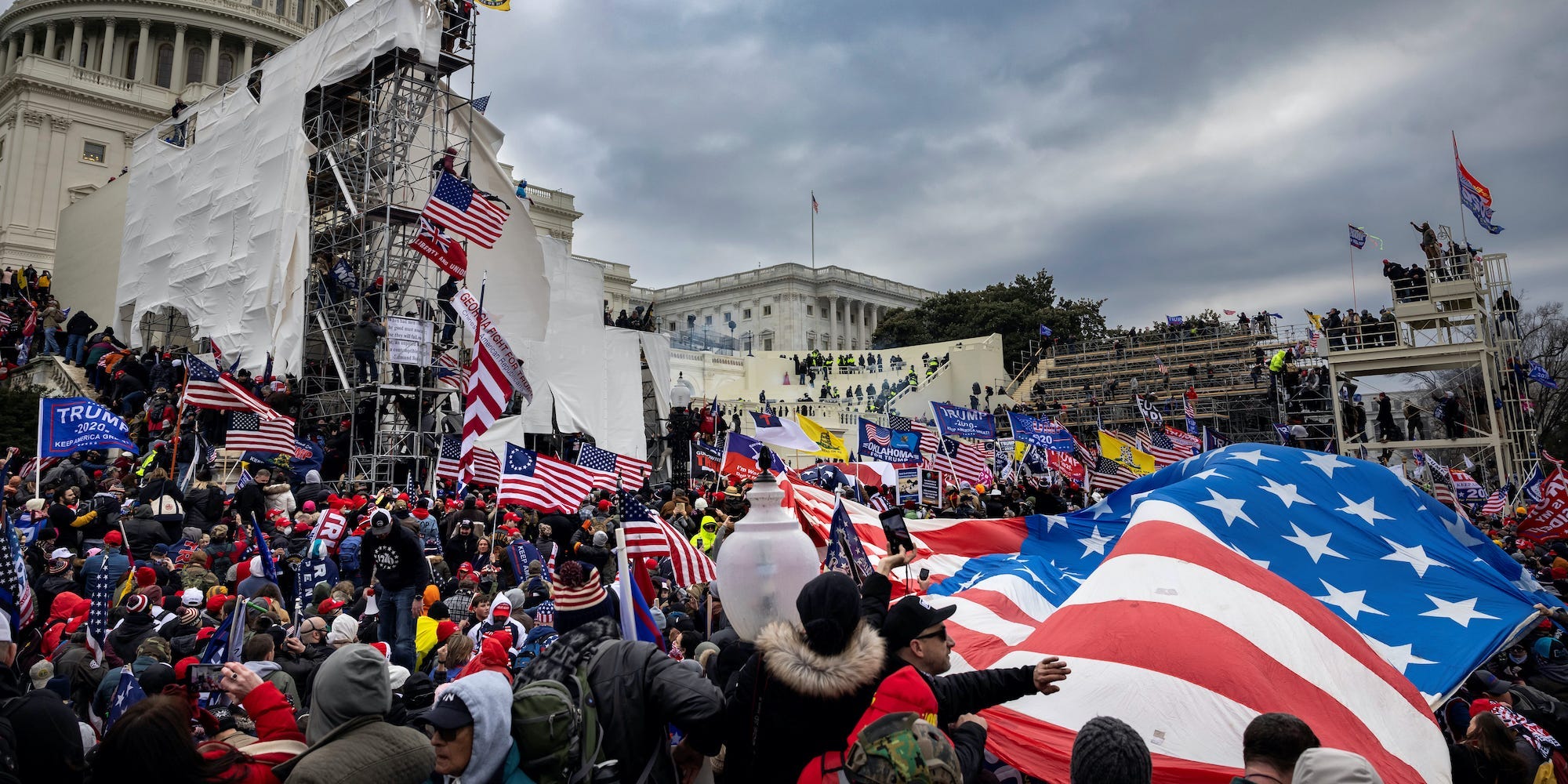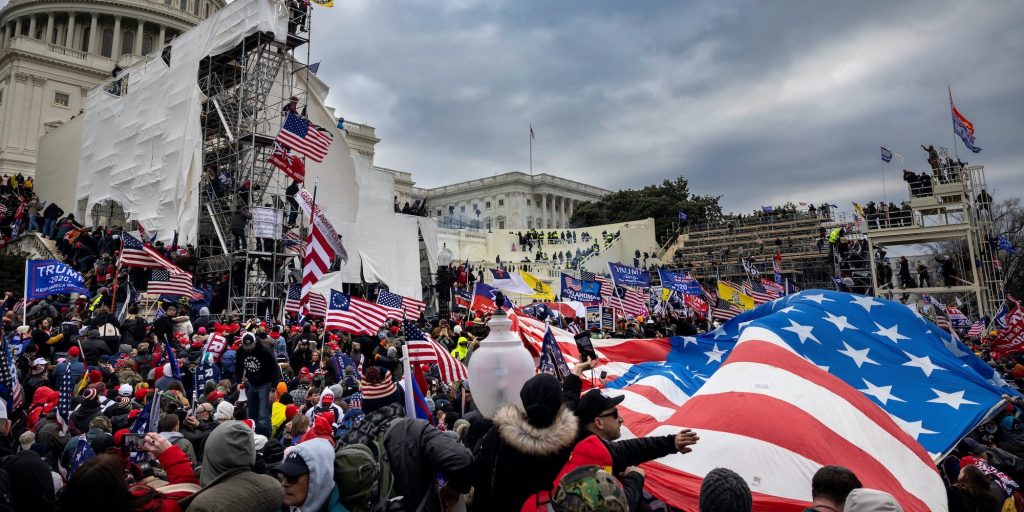
- 49 Capitol rioters deleted online content on their involvement, the Associated Press reported.
- Only a handful have actually been charged with tampering with evidence.
- However, experts say the removal of content could further indict defendants.
- Visit Insider's homepage for more stories.
Some Capitol rioters who posted images and videos of themselves at the January 6 riot and then deleted them could be in even more legal trouble, the Associated Press reported.
At least 49 people charged in connection with the riots were accused of deleting incriminating content off their social media and phones, the AP found, but only a handful have actually faced charges for tampering with online content.
Experts told the AP, deleting the content shows how desperate the defendants were to manipulate evidence against them once they realized they were in legal trouble and that could make getting a plea deal or any other kind of leniency difficult.
"It makes them look tricky, makes them look sneaky," said Gabriel J. Chin, who teaches criminal law at the University of California, Davis.
On January 6, supporters of former President Donald Trump breached the US Capitol and clashed with law enforcement. The riot resulted in the deaths of five people, including a police officer.
The AP reported that in one instance, a member of the Oath Keepers, James Breheny, bragged about his involvement in the riot but deleted his Facebook account which held those posts two days later after someone told him to delete all posts tied to the event.
Several Capitol rioters were caught after posting and bragging about their experience on social media. Some posted photos of themselves inside the building, including a man who took a photo at Speaker of the House Nancy Pelosi's desk.
His lawyer, Harley Breite, however, argued that he never obstructed justice because he didn't know when he shut the account down that it could be evidence.
"You can't delete evidence if you don't know you are being charged with anything," Breite said.
Read more: Michigan's Democrats in Congress face an ethics complaint after hanging with Biden and voting from
While deleting content off of accounts or phones seems easy, prosecutors could request data from social media companies.
Additionally, sometimes people who receive or see the now-deleted content will preserve it and send it to authorities. Metadata on content could also show if contents been altered.
"You can't do it," Joel Hirschhorn, a criminal defense lawyer in Miami who is not involved in Capitol riot cases told the AP. "The metadata will do them in every time."
545 people have been charged in the Capitol insurrection so far.

